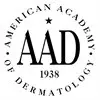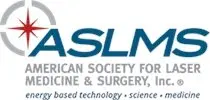Rosacea & Facial Redness Treatment in Washington, DC
Rosacea & Facial Redness Treatment Before and After Gallery *
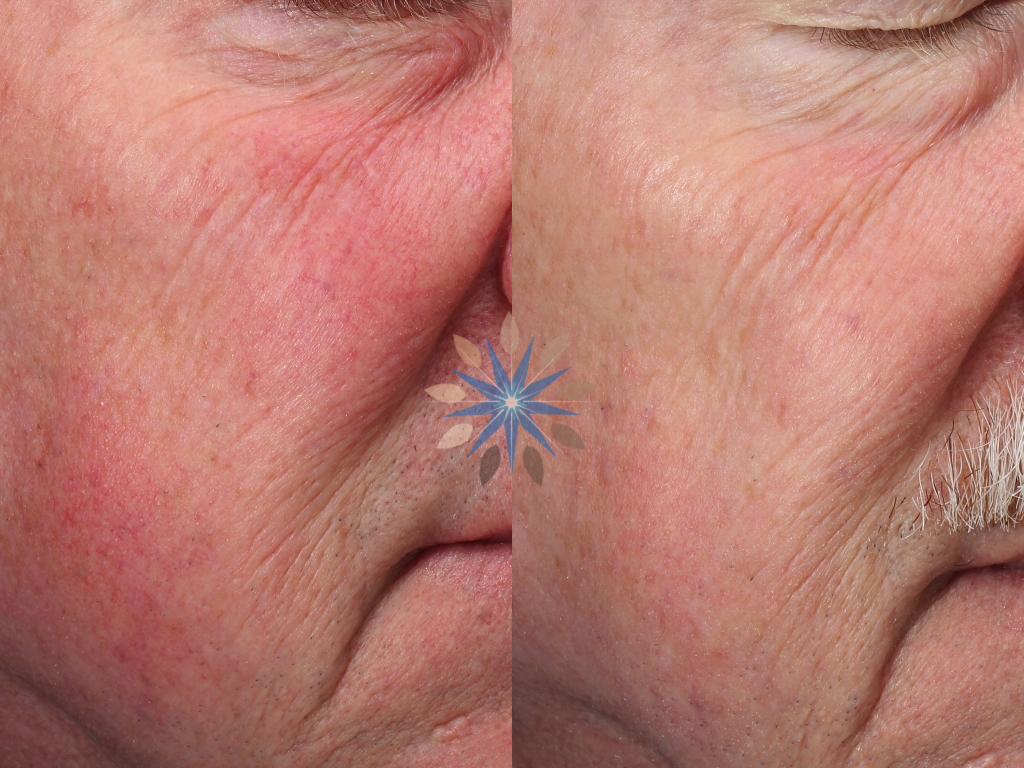
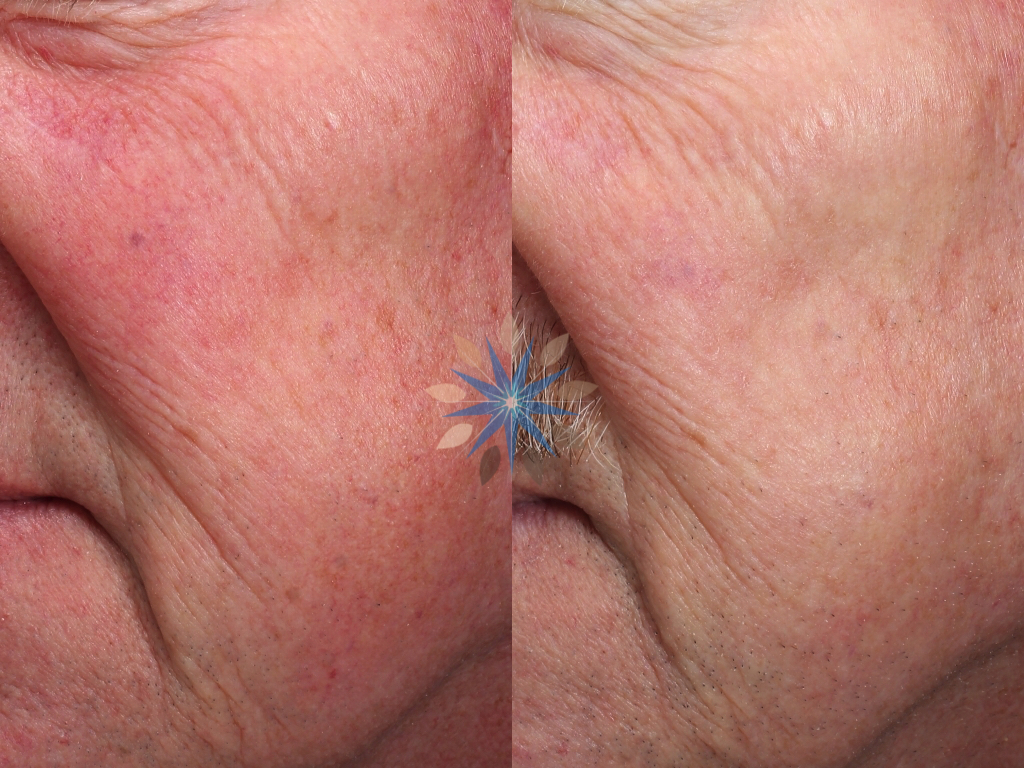
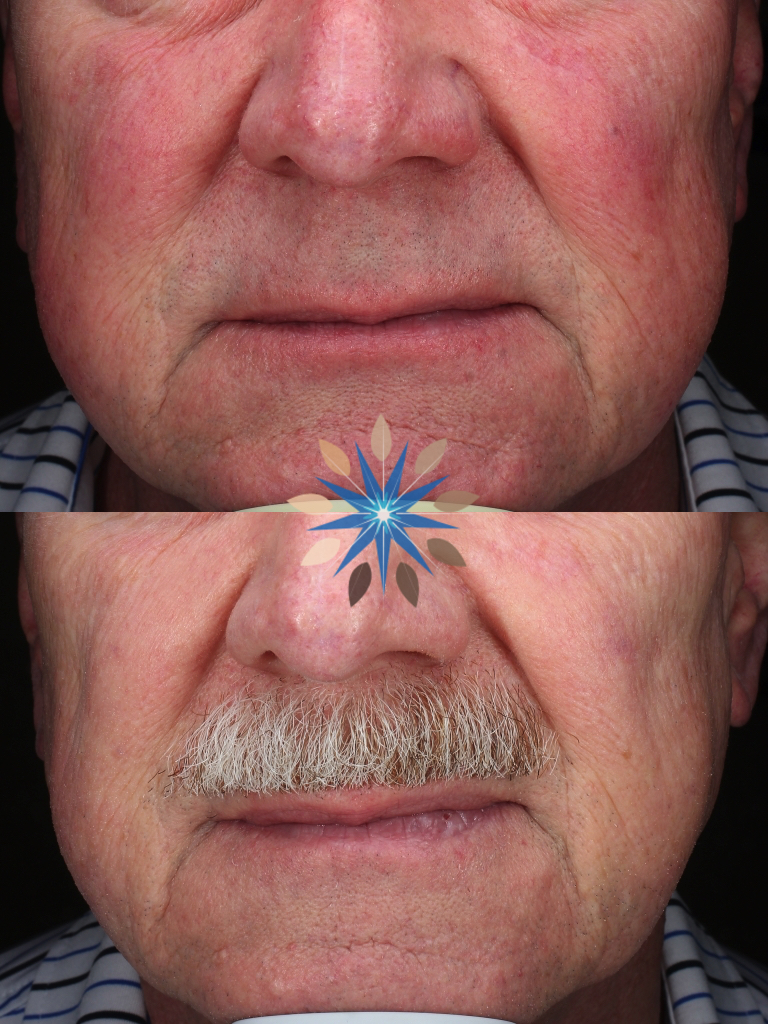



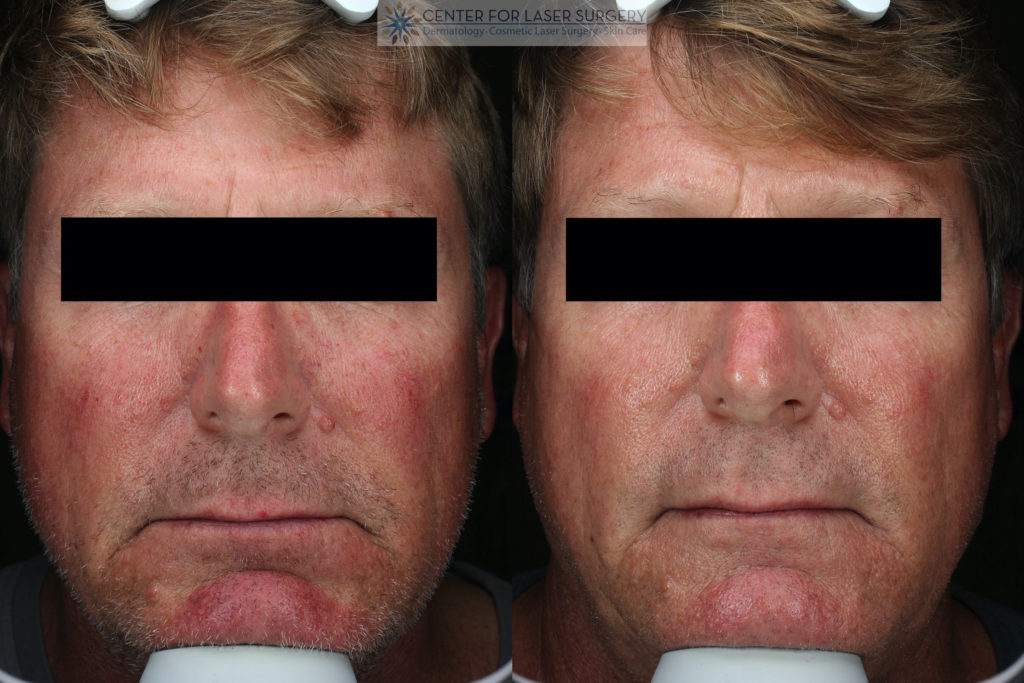
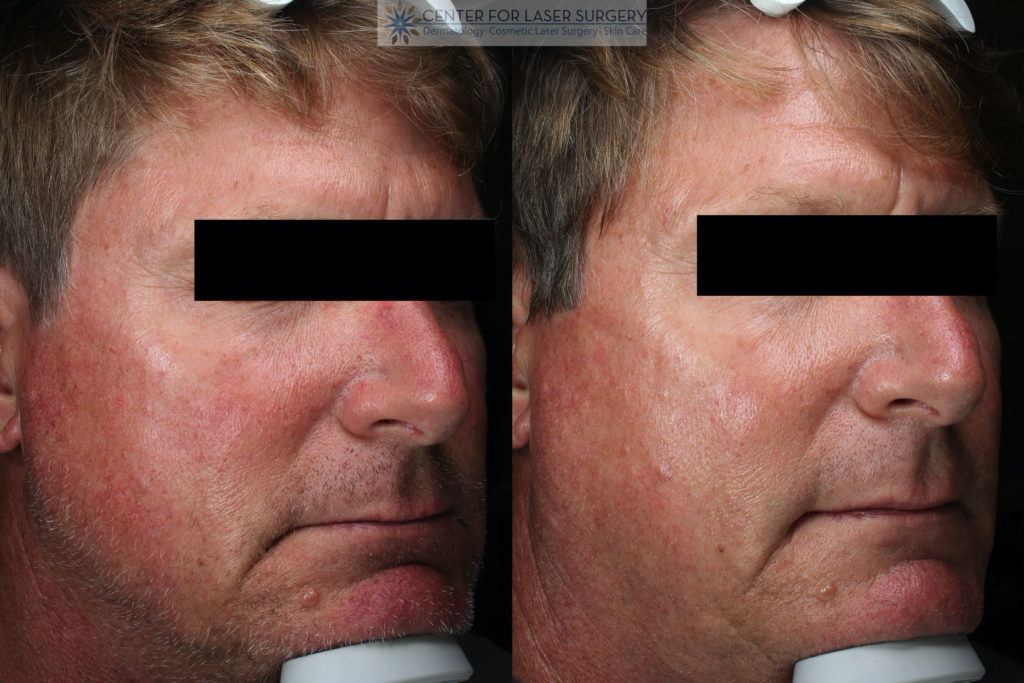
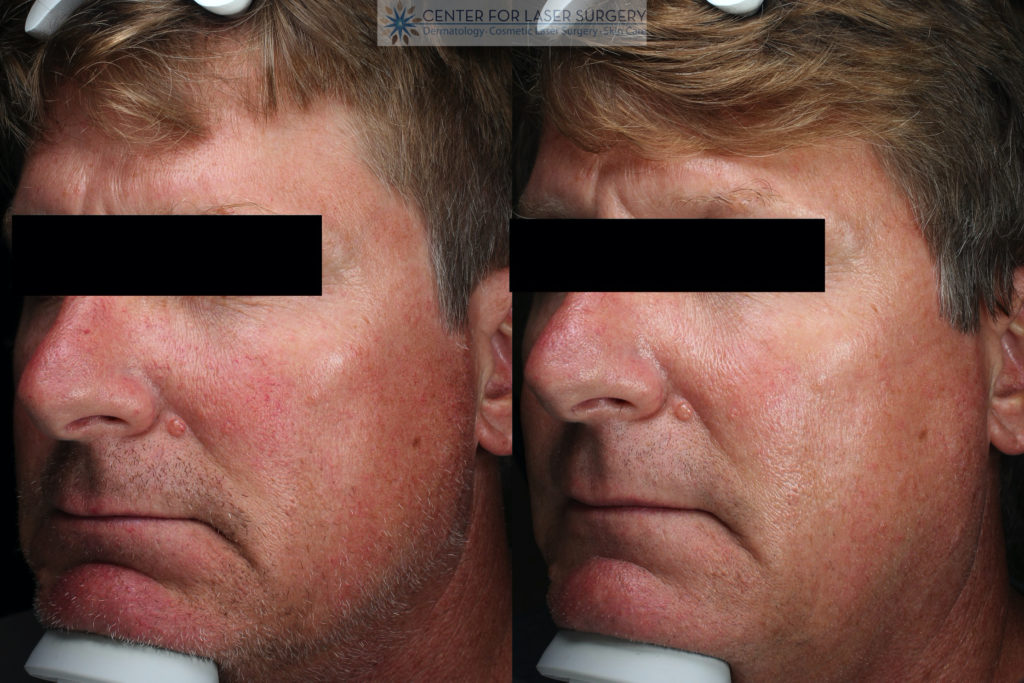
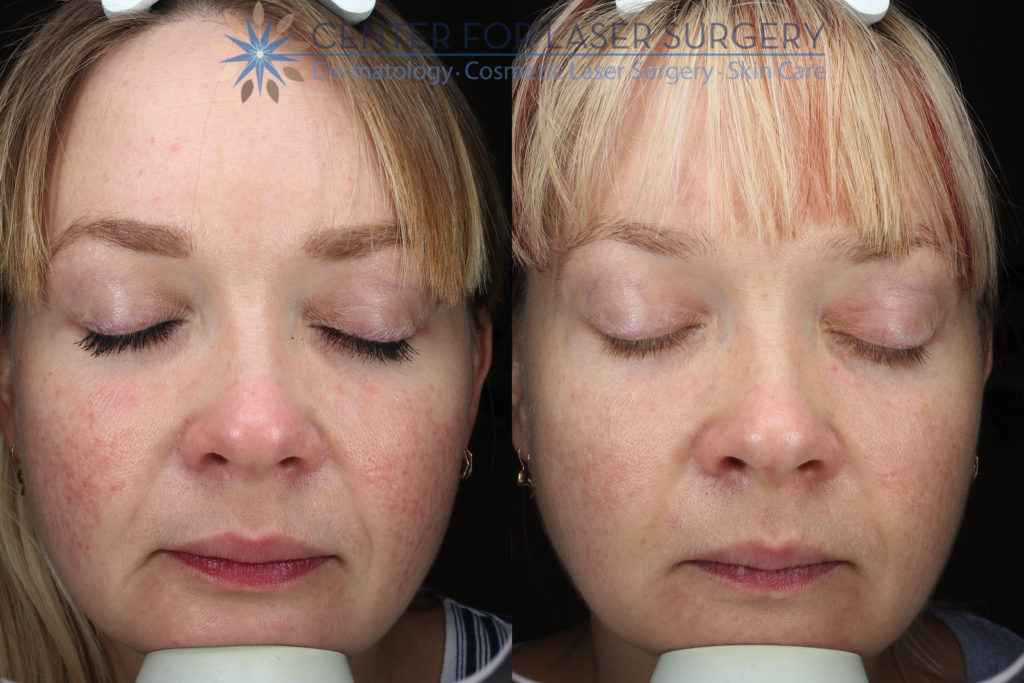
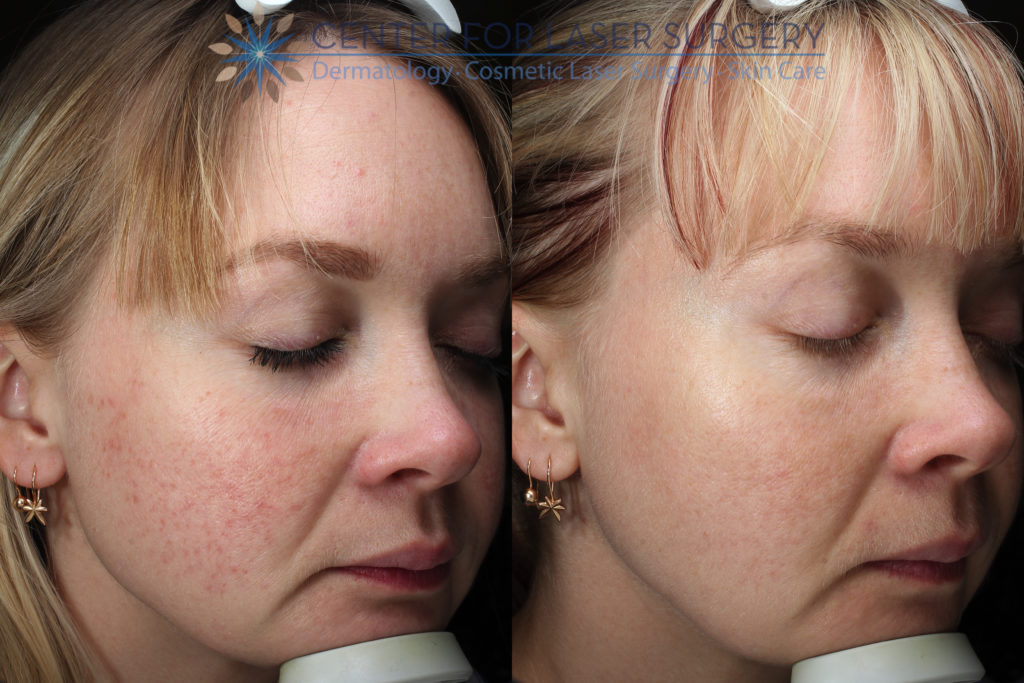


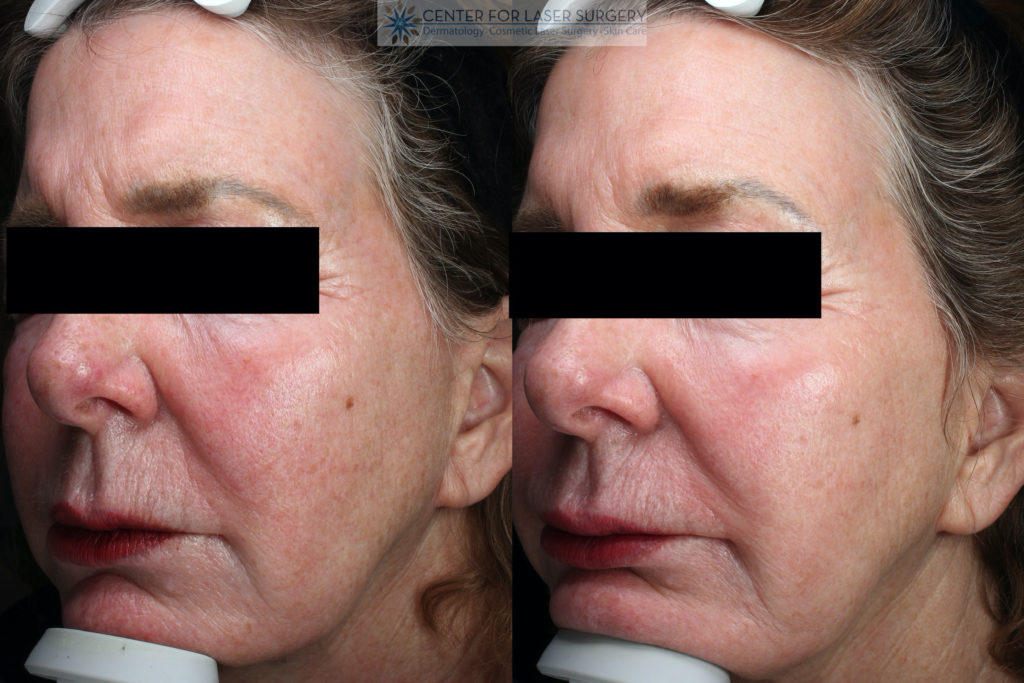

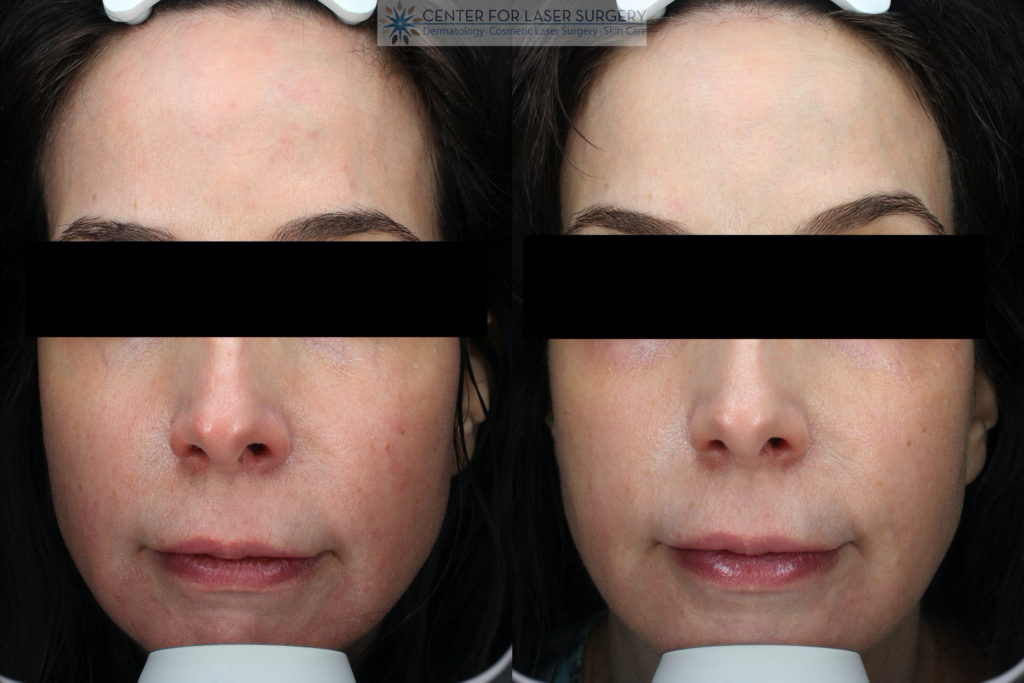
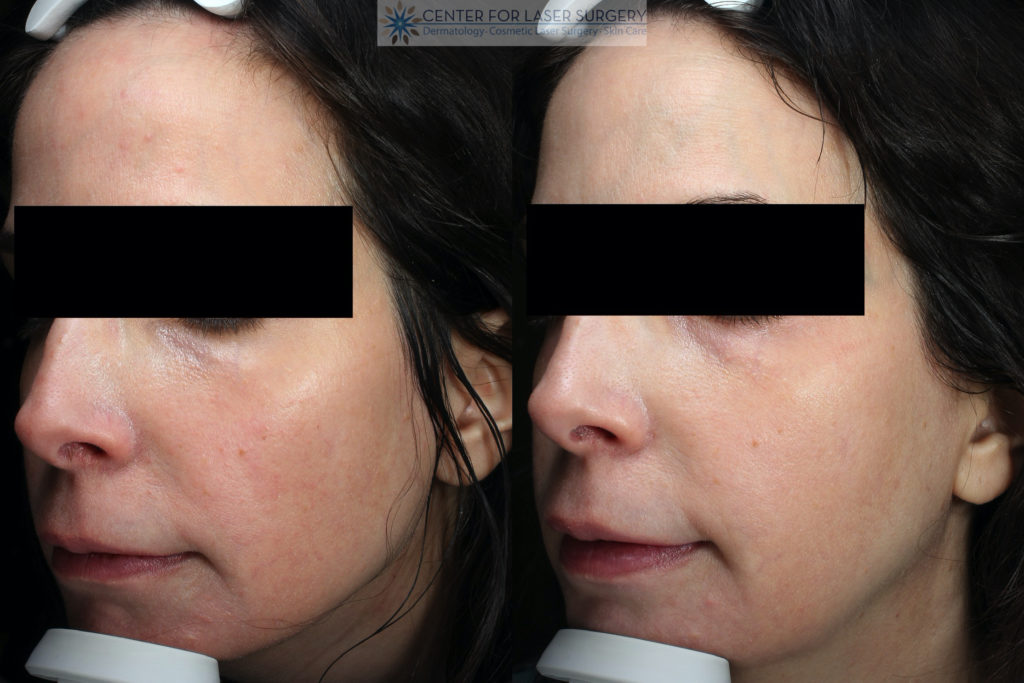
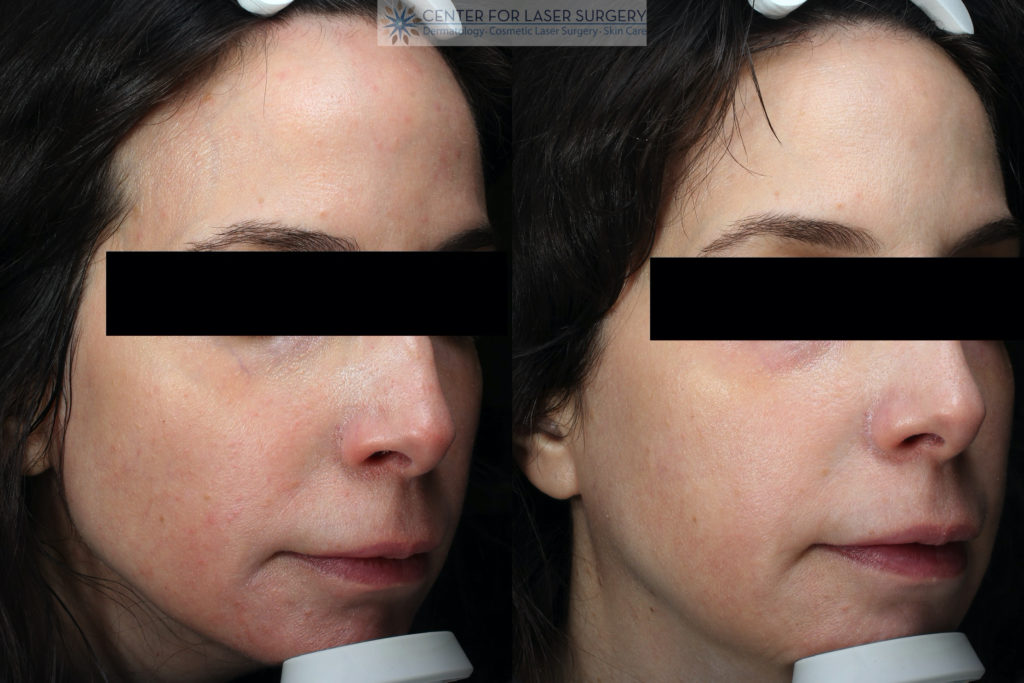
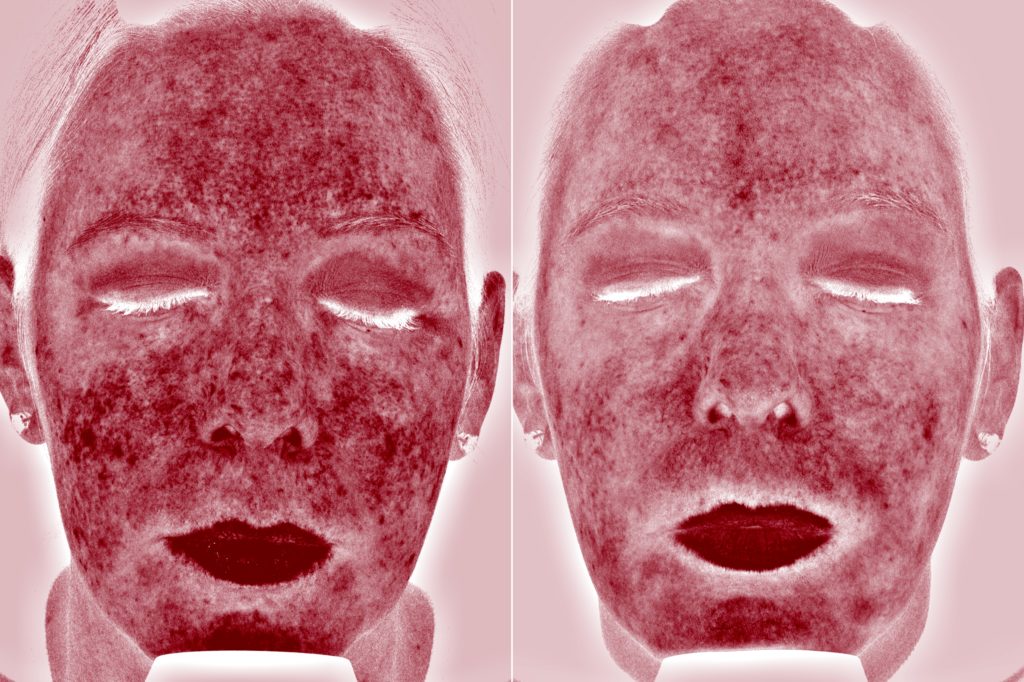
What is Rosacea?
Rosacea is a genetically mediated condition of facial skin ranging from background facial redness with intermittent flushing and blushing to inflammatory rosacea with development of bumps and pustules. Various treatments for rosacea are available, with most standard treatments focusing on reducing the inflammatory components of rosacea while not addressing the underlying condition itself. Modern advancements in laser and light technology have brought exciting new therapies into the fold such as vascular lasers which can effectively reduce all components of rosacea without the need for continuous use of topical medications and/or antibiotics. These laser and light treatments for rosacea are highly effective in treating both the persistent facial redness and inflammatory components of rosacea.
What Causes Rosacea?
Both the facial redness and inflammatory components of rosacea are determined by a person’s genetics and sun exposure. Rosacea itself is a genetic predisposition to develop excess superficial blood vessels in the face in response to sun exposure. In alcohol intake (drinkers flush), caffeine, exercise, spicy foods and beverages, and hot or cold temperatures. While people traditionally were told to avoid these triggers in an attempt to control their rosacea, it is now understood that baseline rosacea is due to a combination of factors, such as genetics, sun exposure, and variable environmental factors. The triggers mentioned above may contribute to rosacea flares, but have little to do with the chronic facial redness and other skin changes induced by rosacea.
How is Rosacea Treated?
Rosacea has traditionally been treated with topical and oral medications with variable success. Nearly all of the prescription treatments for rosacea are focused on reducing the inflammatory components such as papules and pustules and have little to no effect on background facial redness and telangiectasia. There are currently no effective prescription treatments for the chronic facial redness and telangiectasia of rosacea, as medications such as Mirvaso (Brimonidine) which were initially promising suffer from a very short duration of action and significant rebound redness which have limited their use in treating the facial redness of rosacea.
Laser and Light Treatment of Rosacea
The advent of the pulsed 532nm KTP Nd:YAG laser, 585nm Pulsed-Dye laser, and Intense Pulsed Light (IPL) devices have ushered in new treatment paradigms for rosacea. These vascular specific lasers selectively target and reduce the amount of fine telangiectasia in the skin, reducing all components of rosacea, including facial redness, flushing/blushing, and inflammatory lesions. Through an initial series of 2-4 monthly treatments both cosmetic and physical symptoms of rosacea are significantly reduced. After an initial series of treatments patients will typically return 1-2 times per year for additional treatment to maintain results.
What Can I Expect During and After Laser Treatment of Rosacea?
During an initial visit, Dr. Adrian will meet with a patient to examine the extent of rosacea as well as understand previous treatments and their effectiveness. A treatment plan and associated costs will be formulated and discussed with the patient. In cases of severe rosacea, we will often combine a topical medication regimen with laser treatments for a synergistic effect. We can often provide the first treatment during this visit if a patient desires.
Generally, patients experience redness and swelling for 2-3 days after each treatment, similar to a sunburn. Makeup can be applied after treatment if desired. There is a small risk of focal bruising from treatment that can be concealed with green tinted sunscreen.
Post Treatment Recommendations
As we know that chronic daily sun exposure is the most controllable factor in rosacea progression, we recommend patients instigate a comprehensive UV protection regimen, including daily sunscreen and other sun protection practices.
If you have been diagnosed with rosacea or believe you are suffering from rosacea and would like more information on our comprehensive rosacea treatment program please contact us at 202-966-8814 or request an appointment online.



